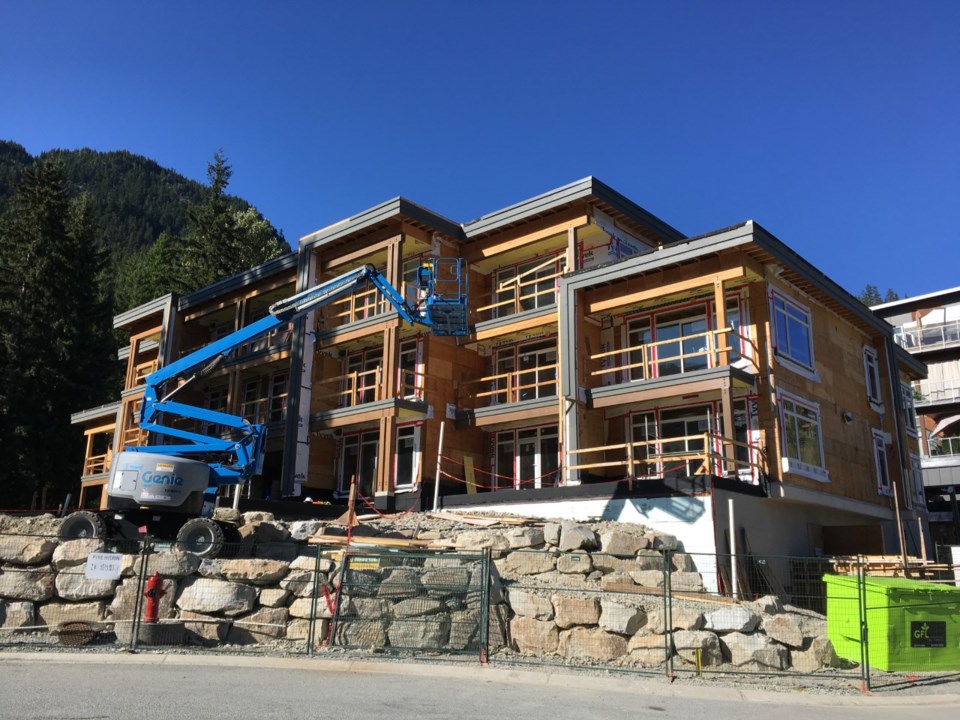Whistler Mayor Jack Crompton said there is a ‘long list’ of projects that could go ahead locally if a recent COVID-19 recovery package floated by the Canada West Ski Areas Association (CWSAA) and more than a dozen B.C. resort communities is adopted by the province.
Last month, CWSAA and B.C.’s 14 Resort Municipality Initiative (RMI) communities—including Whistler—presented the Mountain Resort Community Emergency Funding Program proposal to provincial officials, which is aimed at diversifying sluggish rural town economies and employment opportunities as well as upgrading infrastructure and tourism assets in the midst of the pandemic.
Modelled in part after Tourism Industry Development Subsidiary Agreement that was established by the governments of Canada and B.C. in 1978 to stimulate the province’s tourism sector, the funding proposal calls for a minimum investment of $200 million to implement “shovel-ready” solutions to mountain resorts most pressing issues, namely: a lack of affordable housing; the ever-increasing cost of building and upgrading infrastructure; and a lack of facilities, services and high-paying jobs needed to attract a year-round workforce.
“What the government wanted to see and some of the criteria that they put forth was that these were projects that needed to be started well within a 12-month period, and that obviously creates and stimulates hiring of people, rehiring of people and the spending of those people within the local communities,” explained Chris Nicolson, president and CEO of CWSAA, in an interview last month.
While he didn’t go into much detail, Crompton said there are a number of local projects that could fit the bill.
“Housing, public infrastructure, like parks, trails, possibly a conference centre expansion,” he said.
Crompton is confident a significant investment in Whistler’s infrastructure will provide a much-needed injection of jobs into the local labour market.
“The reason why I’m supportive of a program like this is that it puts people to work, and that’s one of the things we need in a COVID-19 world,” he said.
Along with the obvious challenges of a shrinking economy and a tourism industry cut off at the knees by COVID-19, navigating the uncertain future of Whistler’s labour market will be an essential piece of the recovery puzzle. Nicolson believes the tourism sector will need to shift the public’s perception of the kind of career prospects that are available in resort communities.
“As an industry and more broadly as a key driver within the tourism industry, one of the challenges we have is the perception of tourism as being seasonal and not a viable career,” he said. “That is absolutely not the limit of it and does not fairly describe the industry.”
Jacki Bissillion, owner and president of Whistler Personnel Solutions, said that, while Whistler doesn’t offer the diversity of jobs that other communities of similar size may, for the right kind of employee, climbing the career ladder here can be a much quicker process.
“Even during a pandemic, I’ve always said, in this town, the cream rises quickly and the sludge sinks, so if someone is ready to come out here and dedicate themselves to a company and contributes, works hard and sticks around, it doesn’t take long for people to build a career,” she said.
That is especially true right now, Bissillion posited, when employers may be reluctant to hire frontline staff over the looming fear of a major dip in revenue come shoulder season, but are looking to hire a “core team” that can anchor their business through stormy waters.
“The majority of the jobs that we see—and there’s a lot less of them in terms of pure volume of jobs available—are those long-term, professional ones, not so much the entry-level stuff. That’s out there, but it’s very short term,” she said. “I think it’s a flashback to when Whistler was young and we struggled to fill in the shoulders. Businesses hired seasonally as opposed to year-round, so the job market now is a little more specific.”
For more information on the mountain resort funding proposal, visit cwsaa.org/newsletter/july-2020-newsletter.




